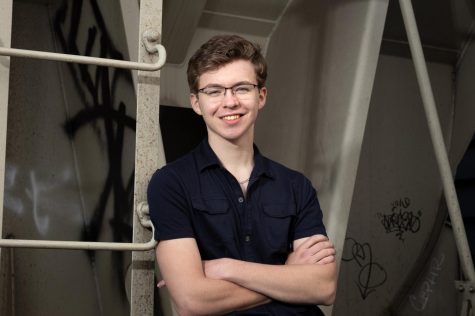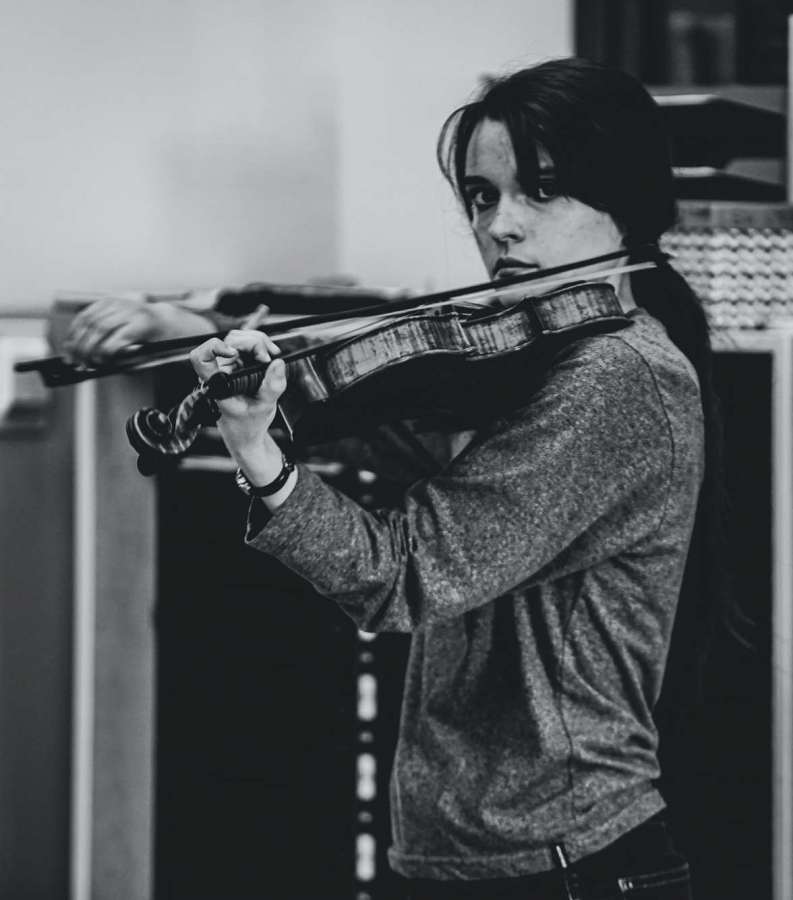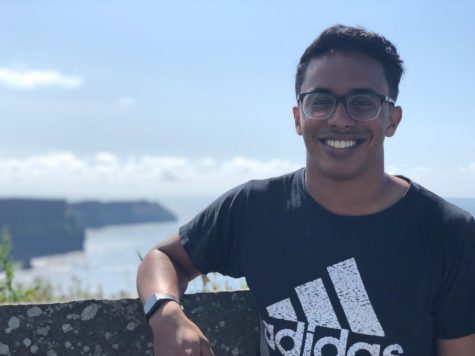Orchestra members share passion for playing
Seniors Adeline Kovell and Ian Paulson offer advice to others who wish to play
June 16, 2020
It’s June 4, 2020. The audience has settled into their seats and the performers, dressed in their enesemble’s uniforms, wait patiently for the concert to begin. It is the last concert of the school year, and for some, the last concert in high school. All of the hard work practicing and rehearsing all year comes to fruition tonight for band and orchestra students.
For two soloists, Adeline Kovell and Ian Paulson, tonight is especially important. It is a chance to showcase their musicianship for their peers, family, and friends and gain valuable solo experience. Unfortunately, this night will not happen. COVID-19 has forced Shorewood to close its facilities for the rest of the school year. Nevertheless, Kovell and Paulson’s passion for music and leadership in the Shorewood music program stands out.
Adeline Kovell, violin
Kovell began playing the violin at 5 years old. She cites her parents’ background in music as the reason she started playing an instrument at a young age.
“My dad teaches music and my mom plays clarinet from time to time. So I’ve always been told that they wanted me to pick an instrument when I was really young,” she said.
But, the decision to play the violin was made on her accord.
“I was interested in violin specifically because it just has the best package. It looks great; It sounded great; It had an fascinating mechanism for making sound: the bow. For some reason that appealed to me. It was the only instrument that I wanted to play,” she said.
After deciding on an instrument, Kovell developed her skills on the violin through hours of focused practice.
“When I was in middle school I practiced four hours a day religiously. In high school that changed as I got busier, but I try to make time to practice 15-20 hours a week. I always try to make sure that I go for quality over quantity when I am practicing. Whenever I learn something I try to make sure that it sticks,” Kovell said.
She feels that, with her skills, in the right setting, she can have a powerful impact on audiences with her violin.
“If I am in a good performing environment, a place where I don’t feel overly judged, I feel like I am there to play music and I’m not there for other people to assess me, then I feel like I am doing something wonderful for the people around me and then I feel powerful,” Kovell said.
She admires her role model, her violin teacher, for his similar pursuit of sharing music with others.
“He’s always brought this reasonable approach to music. He wasn’t playing music to make a lot of money, be better than everyone else, or get ahead in life. He was playing music to share good vibes,” she said.
Kovell also didn’t want status and competition to drive her musical experience. When she started playing at Shorewood, Kovell was more focused on her youth symphony, but over time she grew to prefer school orchestra because of the relaxed, less competitive environment.
“As high school went on, I found that, as much as I like youth symphony, I really like my school orchestra a lot better. I just didn’t fit in as well with the competitive nature of the youth symphony, and I found that I had more in common with my friends at Shorewood,” she said.
During her time at Shorewood, Kovell has held concertmaster and section leader positions in all three of Shorewood’s orchestras. She believes that gaining a more defined self-identity has helped her to become a better leader.
“I learned that when you’re at rehearsal or at a concert, you’ve got to know why you’re there and know why you’re doing what you’re doing. I wasn’t sure my freshman year who I was and what I was about and why I did anything at all. By the time senior year came around, being an experienced orchestra member, knowing what I wanted, I felt more comfortable motivating people,” she said.
Kovell plans on continuing her music journey, pursuing a music major after a gap year. During her gap year, she wants to gain experience in a profession she could pursue along with music.
“I am hoping to become a music major, but I’m not really trying to enforce any particular dreams or goals anymore because things change really fast. I’m trying to take things one step at a time and keep other options open. Something I am considering is getting employed as a contact tracer and working for one of the counties over the summer,” Kovell said.
She leaves Shorewood musicians and students with the following advice: “Don’t get caught up with the numbers and the rankings. So much of the way we categorize people, by what seat their sitting in or their GPA, isn’t helpful because everyone is special individually.”
Ian Paulson, flute
Paulson began playing the flute in 5th grade. He got interested in music because his mom used to play the clarinet.
“My mom was a music minor in college, so music has always been kind of a thing in my family,” he said.
His parents pushed him toward clarinet due to his mom’s experience, but Paulson found a connection to the flute.
“I don’t know, I just saw the flute and I really wanted to play it,” he said.
Although Paulson is frustrated at times when he plays, he keeps going because he finds the overall experience rewarding.
“Sometimes I definitely don’t enjoy playing flute. There are days when nothing seems to go right, but the more you practice there are less of those days. But most of the time I see it as an outlet for me to express my emotions. At a certain point, you gain so much control over the sound,” Paulson said.
Gaining more control over the sound came with disciplined practice, a trait that Paulson developed through his time at Shorewood.
“In my first three years I didn’t really practice as much as I needed to. This year, I really started to routinely practice. There was a two month period where I practiced two hours every school day and three hours on the weekends. In that time I became such a better player,” he said.
As Paulson developed his practice habits, he also developed his leadership traits.
“I struggled with being a leader in the past. At the beginning of high school when I didn’t have things figured out as much, I offered help to my section members in a way that didn’t seem like I cared about them. I think I came off as snotty,” he said.
Paulson attributes an improvement in his leadership ability to his growing confidence as a musician.
“I’ve gained confidence from having more playing experience. Leading a chamber group for three years and going to state has especially helped,” Paulson said.
He plans to continue his musical journey next year at Carleton College as a music minor.
“I plan to audition for the orchestra and hopefully I’ll get in. I’ll also probably want to form a chamber group at some point. Those have been really fun in the past,” he said.
Paulson has also been eyeing a recital opportunity at Carleton to make up for his senior solo.
“There’s an opportunity for a junior or senior recital where you have to put together an hour’s work of music. I’ll probably do it because I want one big performance before I lose the opportunity,” he said.
Reflecting on his time in high school, Paulson says that his best band memory was being able to work with band teacher, Dan Baker, senior year.
“I think Mr. Baker really pushed us this year to be a better band than we have been. I would often practice in the band room during lunch and talk to him and other band members who were also practicing. There was a camaraderie that formed between us.”
Paulson leaves current and future band members with the following advice: “Try to find

genuine enjoyment and satisfaction in playing and that will serve you well.”



